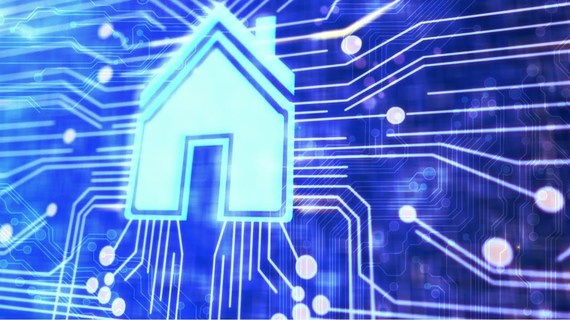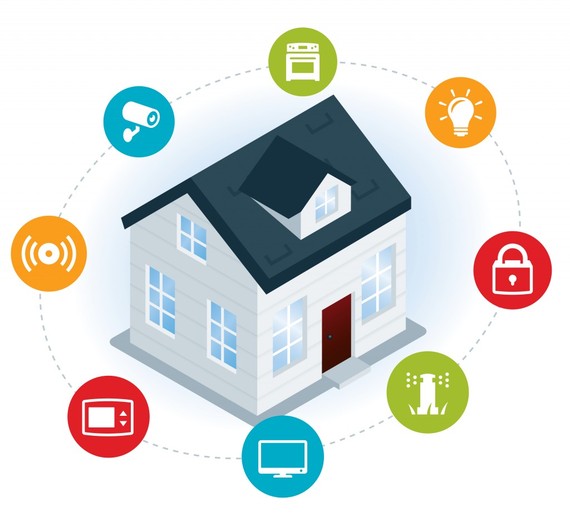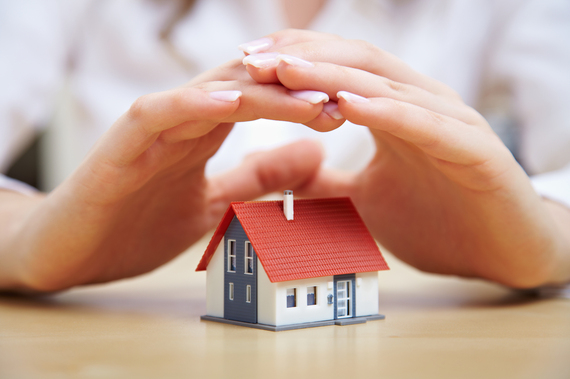It's all the rage: home monitoring systems to assure that kids got home just fine, light sockets that can be switched on and off by an iPhone, thermostats that will make the den all comfy before getting home, and even refrigerators that tell you when you are out of milk and eggs. These "smart" homes and devices, with infinite connections to the outside world, offer unprecedented access to information and a certain amount of ease.
They also make your home more vulnerable.
Our financial, personal and medical information on home computers - let alone our movements into and out of the house - are easily accessible to the outside world. Even the most benign devices can be manipulated. Just ask all those new parents with their fancy baby and video monitors who have been hacked by creeps and heard strange voices from the crib.
In other words, what once was a shelter, a safe harbor, the place you locked up at night after the kids were asleep and shuttered away the outside world, no longer exists. Mobile devices and gadgets are connected to a world that is exciting, but also comes with some risks.
We are all getting so "smart" that sometimes we can be stupid.
As a mother of three, and a homeland security expert, I would love to wish away all harms that could come our way, and our kid's way. But closing off the outside world is no way to live, and your kids won't like you for it. Basic precautions, however, can minimize the risk to you and your family and simple efforts can put manageable defenses between your home and the outside world.
Most advice about the cyber-world has to do with monitoring the content of our kid's social media activity or ensuring that they aren't getting bullied (or bullying). That is important, but it's only part of the challenges of parenting in a connected world. Here are some basic steps we all can take to make our smarter home safer:
1) Ask Yourself: Do I Really? Gizmos are cool, no question about it, but the first step in protecting your home from outside monitoring, infiltrations and hacking is to limit the access points into your home. I don't mean to say we have to live like it's the 19th century, but think of every device as creating the potential for access to your home. The fewer devices you have linked to the web, the fewer spots of entry. In other words, get up off that sofa - or have the kids get off that sofa - and tell you whether there is any milk left in the fridge.
2) A Different Kind of Clean: The term is clunky, but focusing on "cyberhygiene" is an important step in protecting a home's network. Simple rules of the road regarding passwords -- make them difficult and not obvious, change them often, alter any default settings, and don't share -- are so obvious but easily forgotten by kids who are focused on Snapchat. Remind the kids that you don't have cousins in Nigeria and that the email with the subject line -- "Let's go to the Beyonce concert!" -- isn't coming from you.
3) Divide & Conquer: It is also worth spending a few moments to hide your router name so that it doesn't come up in a search by neighbors or that guy on the street. And while you are at it, change your router name from "we live at this address" to something a little less obvious.
4) Put Your Kids Bad Habits to Use: Many of us buy products and have little idea of their capacity or potential: the instruction guides are just too long. But it's a little disconcerting to learn that that new television has an out-facing camera that's been monitoring you watching the Real Housewives when you thought no one was watching. Or worse, your teenage daughter. Many of these features can be turned off or disconnected. Many of us may feel generationally challenged in figuring this all out. Why else have kids?
5) Avoid Single Points of Failure: As parents, we try to build redundancies and backups into our daily lives and managing the kids so that if something were to go wrong, the whole system doesn't come to a standstill. In homeland security, we try to build systems that do not have a "single point of failure;" backup generators in hospitals is a good example. In our smart homes, we can do the same. A layered defense is the best defense. Simple efforts like multiple passwords and authentication requirements won't stop a determined hacker, but will just reduce the ease by which your home can be infiltrated. Some cybersecurity experts are even recommending multiple networks in a home with a lot of "smart" devices, so that you can separate computers and phones from a alarm or entertainment system.
Any system of security has three fundamental aspects: minimizing risks, maximizing defenses, and maintaining our spirit and freedoms in the process. Tuning out is not an option. But we also wouldn't buy homes that didn't have locks on their doors. Basic steps can make it that much harder for the place where you want to protect your family a little less vulnerable.
Juliette Kayyem is the author of Security Mom: An Unclassified Guide to Protecting Our Homeland and Your Home.
Follow Juliette Kayyem on Twitter: www.twitter.com/juliettekayyem


